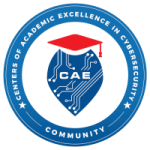Center of Academic Excellence in Cybersecurity Community (CAE-C)
An educational institution designated a Center of Academic Excellence in Cybersecurity (CAE-C) has met the rigorous requirements outlined by the National Security Agency. Designated institutions commit to producing high-quality cybersecurity professionals to safeguard the U.S. national infrastructure.
National Initiative For Cybersecurity Education (NICE)
The mission of NICE is to energize, promote, and coordinate a robust community working together to advance an integrated ecosystem of cybersecurity education, training, and workforce development.
Montreat 360 Competency Statements
Montreat 360° is built to help students recognize the valuable skills they are gaining and equip them to communicate their skills effectively as they enter the workforce.
Crowdstrike Adversary Universe
Discover the Adversaries targeting the industry.
NIST Cybersecurity
NIST develops cybersecurity standards, guidelines, best practices, and other resources to meet the needs of U.S. industry, federal agency, and the broader public.
Mobile Device Security resources to help you identify threats to mobile devices, and security solutions to better protect enterprise IT.
ISO/IEC Standards
ISO/IEC 27001 is widely known, providing requirements for an information security management system, though there are more than a dozen standards in the ISO/IEC 27000 family. Using them enables organizations of any kind to manage the security of assets such as financial information, intellectual property, employee details or information entrusted by third parties.
MITRE | ATT&CK
MITRE ATT&CK® is a globally-accessible knowledge base of adversary tactics and techniques based on real-world observations. The ATT&CK knowledge base is used as a foundation for the development of specific threat models and methodologies in the private sector, in government, and in the cybersecurity product and service community.
CISA
CISA works with partners to defend against today’s threats and collaborates to build a more secure and resilient infrastructure for the future.
DHS
The Department of Homeland Security has a vital mission: to secure the nation from the many threats we face. This requires the dedication of more than 240,000 employees in jobs that range from aviation and border security to emergency response, from cybersecurity analyst to chemical facility inspector. Our duties are wide-ranging, and our goal is clear - keeping America safe.
National Security Agency (NSA)
Working to prevent and eradicate cyber threats, the National Security Agency promotes cybersecurity education, research, and career building.
National Cybersecurity Training and Education Center (NCyTE)
The National Cybersecurity Training and Education Center advances cybersecurity education in the U.S. by investing in technological innovation, resources, professional development, and tools to support faculty, community colleges, and the workforce.
Idaho Cybersecurity Awareness
Protecting Idaho citizens' privacy by safeguarding Idaho's information, data, systems, and infrastructure while establishing strong cybersecurity leadership, awareness, training, best practices, and partnerships.
Cyber Seek
To help close the cybersecurity skills gap, Cyber Seek provides detailed, actionable data about supply and demand in the cybersecurity job market.
CYBER.ORG
CYBER.ORG's goal is to empower educators as they prepare the next generation to succeed in the cyber workforce of tomorrow.
CLARK
CLARK, the Cybersecurity Labs and Resource Knowledge-base, is a platform for building and sharing free cybersecurity curricula. It includes a model for building curriculum, the digital library system, and distinct curriculum collections.
Cybersecurity Education Resource Dictionary (CARD)
CLARK, the Cybersecurity Labs and Resource Knowledge-base, is a platform for building and sharing free cybersecurity curricula. It includes a model for building curriculum, the digital library system, and distinct curriculum collections.
National Cybersecurity Student Association
The Nation's largest association of cybersecurity students supporting their cybersecurity endeavors through extracurricular activities, career opportunities, mentoring, and keeping them at the forefront of cybersecurity trends.
National Initiative For Cybersecurity Careers And Studies (NICCS)
The premier online resource for cybersecurity training, education, and career information. NICCS connects government employees, students, educators, and industry with cybersecurity resources and training providers throughout the Nation.






